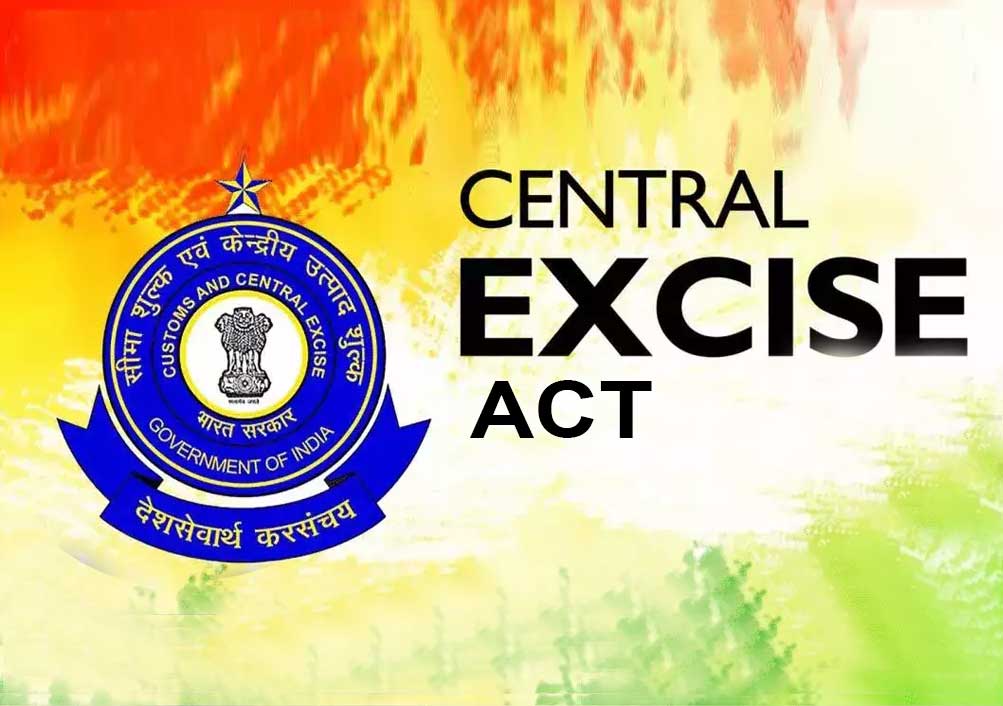In C.A. Nos. 9569-70 of 2019-SC- To attract MRP based valuation of goods under Central Excise Act, goods should be notified u/s 4(A) and must come within purview of Legal Metrology (Packaged Commodities) Rules,2011: SC
Justices Krishna Murari & Sudhanshu Dhulia [21-03-2023]

Read Judgment: COMMISSIONER OF CENTRAL EXCISE & SERVICE TAX, KANPUR v. M/S. A.R. POLYMERS PVT. LTD. ETC
Tulip Kanth
New Delhi, March 22, 2023: Mere affixation of MRP does not make goods eligible to find refuge under Section 4(A) of the Central Excise Act, 1944 and what is required along with such affixation is a mandate of law that directs the seller to affix such MRP, the Supreme Court has clarified.
“A bare perusal of Section 4(A) of the Act and the abovementioned judgment would show that to attract a MRP based valuation of goods under the Central Excise Act, the goods should be notified under Section 4(A) of the Act and that such goods must come within the purview of the Standards of Weights and Measures (Packaged Commodities) Rules, 1977, which has now been repealed and replaced by the legal Metrology (Packaged Commodities) Rules,2011”, the Division Bench of Justice Krishna Murari and Justice Sudhanshu Dhulia affirmed.
An intelligence was received by the DGCEI that the first respondent(M/s AR Polymers Pvt. Ltd.), a manufacturer engaged in the manufacture of footwear and the sale of the same to defense/paramilitary forces in bulk for their use was availing benefits under notification No. 12/2012-CE dated March 17, 2012 and Section 4(A) of the Central Excise Act, 1944, which is limited to footwear sold in retail.
The said notification wholly exempts the payment of Central Excise Duty for retail sale of footwear under Rs 500 and limits Central Excise Duty to 6% where the rate of the footwear is between Rs 501 to Rs 1000.
After inspection it was found that the respondent was manufacturing the footwear as per a contract entered into between the parties, and a rate for the sale and purchase of the footwear was fixed under the contract. It was also found that the respondent was printing and attaching MRP stickers on the insole of the said shoes, only to avail the benefits of the abovementioned notification and Section 4(A).
A demand-show cause notice was issued and the Adjudicating authority passed an order against the respondent holding that the benefit of the aforesaid notification does not extend to the footwear sold by the respondent, and hence the respondent was directed to pay the difference amount between the tax already paid and the tax which was liable to be paid. A penalty was also imposed on the director of the respondent company.
The respondent filed an appeal in the CESTAT and the Tribunal overturned the judgment of the adjudicating authority. As against this, the Appellant had filed the Appeal before the Top Court.
The Bench took note of the fact that the Respondent, due to the tax assessment being less under Section 4(A), was seeking benefit under the same, however, due to the assessment under Section (4) being more, the Appellant was claiming for the assessment to be done thereunder.
The Bench referred to the judgment in Jayanti Food Processing Pvt. Ltd. v. Commissioner of Central Excise, Rajasthan where the Top Court while deciding on a similar issue, held that for goods to be included under the assessment of Section 4(A) of the Central excise Act, it must comply with five factors which were that the goods should be excisable goods; they should be such as are sold in the package; there should be requirement in the SWM Act or the Rules made thereunder or any other law to declare the price of such goods relating to their retail price on the package; the Central Government must have specified such goods by notification in the Official Gazette and the valuation of such goods would be as per the declared retail sale price on the packages less the amount of abatement.
In this case, the respondent entered into a sale with the paramilitary and military as per the terms of agreement signed, the Bench opined while also adding, “Due to the purchasers, on account of them being institutional consumers, are exempt from the Legal Metrology (Packaged Commodities) Rules, 2011, and since Section 4(A) of the Act mandates the applicability of the abovesaid rules, the transaction automatically becomes ineligible to claim refuge under Section 4(A) of the Act”.
The Bench asserted that in such a circumstance, where the purchaser institution is deemed to not be a consumer, the sale also cannot be held to be a retail sale as per the Act. Further, since the impugned sale is not a retail sale as per the Act, there exists no mandate of law on the Respondent herein to affix an MRP on the goods sold, and hence the said impugned transaction cannot claim benefit under Section 4(A).
As per the Bench, the tribunal in its reasoning for passing the impugned judgment only considered whether the goods in question were notified by way of a gazette, and did not consider the other four relevant conditions laid down by the Jayanti foods Case (Supra).
“By not considering other relevant considerations, it is our opinion that the tribunal has committed a grave error in law, and hence the impugned judgment is liable to be set aside”, the Bench held while allowing the appeals and directing the Respondent to pay the differential amount to the relevant tax authority.
Sign up for our weekly newsletter to stay up to date on our product, events featured blog, special offer and all of the exciting things that take place here at Legitquest.




Add a Comment